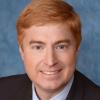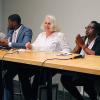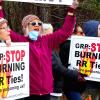NSA Chief Uses UGA Speech to Recruit Students

In 1974, the New York Times published an article by Seymour Hersh revealing that U.S. intelligence agencies were monitoring American citizens and collecting information on their political activities. This report inspired Sen. Frank Church to investigate, and his Senate committee uncovered numerous abuses' including further evidence of domestic spying by the National Security Agency.
On NBC's "Meet the Press," Church issued a warning to the American people: "The technological capacity that the intelligence community has given the government could enable it to impose total tyranny... We must see to it that this agency [the NSA] and all agencies that possess this technology operate within the law and under proper supervision so that we never cross over that abyss. That is the abyss from which there is no return."
The Church Committee led to important reforms, including the Foreign Intelligence Surveillance Act of 1978, which prohibited domestic surveillance without a court order. Church's top aide at the time, Loch Johnson, is now Professor of International Affairs here at the University of Georgia and he invited James Clapper, director of national intelligence, to give the UGA Charter Lecture Monday, Apr. 14 at the Chapel.
Clapper oversees every U.S. intelligence agency, reporting directly to President Barack Obama, and attained some notoriety last year after giving statements under oath to Congress he later admitted were false. No charges are forthcoming, but if convicted of perjury, Clapper would face up to five years in federal prison. Johnson said he is not ignoring this potential crime, but maintains, "A free society begins with freedom to speak and to hear. Let the people judge their officials, and this requires that we hear them." He expressed interest in Clapper's opinion on the NSA overreach revealed by Edward Snowden, as well as allegations of the CIA spying on Congress.
However, those topics were mostly ignored during Clapper's short speech, as well as during Q&A afterward. Clapper spoke about the threats facing America, from the Boston marathon bombing to a more aggressive Russia, and also spoke about things not directly intelligence-related such as climate change and drug-resistant bacteria. He bemoaned the shrinking intelligence budget and bragged about declassifying 2,000 pages of documents, citing the need to be more transparent. He did not mention that these pages were heavily redacted, with entire paragraphs completely obscured, or that the pages were released as part of a court order resulting from a lawsuit filed by the ACLU.
Snowden himself was briefly mentioned a handful of times. Clapper expressed discontent that many college applicants are starting to mention Snowden as their personal hero, describing his leaks as "the most massive and damaging theft in our country's history." Clapper defended the right of whistleblowing but contended that Snowden does not deserve the label because he did not report his concerns up the chain of command, to Congress or to the Justice Department.
Earlier this year, Snowden gave testimony to the European Parliament claiming that he did in fact report the perceived wrongdoing to his superiors more than 10 times, only stopping after they failed to take any action. Other NSA whistleblowers, such as William Binney and Kirk Wiebe, have tried for years to go through the channels mentioned by Clapper and have had their homes raided and their property seized by the FBI. Binney was pulled out of the shower with a gun to his head in a raid he described as "retribution and intimidation" for exposing waste and fraud in the domestic surveillance program called Trailblazer. Binney had worked at the NSA for four decades before leaving the agency when it began— it once did before the Church Committee—to spy on American citizens in the Bush-era program called Stellar Wind.
The remainder of Clapper's talk seemed like a recruitment drive, with a UGA graduate now working for the NSA taking the stage with Clapper and even fielding some questions from the audience while remarking, "I'm not a recruiter by trade." Clapper likewise encouraged the audience to seek out employment in the intelligence community several times.
Clapper received many questions from the audience, but only from the front rows. "I was raising my hand the whole time," said Paul Gilmer, a law student who did not receive the privilege of a reserved seat.
William Atkinson, an international affairs student, said he was disheartened because a debate he felt was needed did not happen. "There wasn't any challenge to the government's perspective," he said.












comments